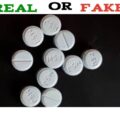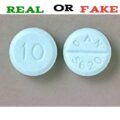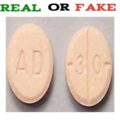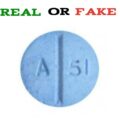Lisinopril is a medication of the angiotensin-converting enzyme (ACE) inhibitor class used to treat high blood pressure, heart failure, and after heart attacks. For high blood pressure, it is usually the first-line treatment, It works by relaxing blood vessels so blood can flow more easily. It is also used to prevent kidney problems in people with diabetes mellitus.
Fake Teva Amlodipine and Lisinopril anti-hypertensive medicines have been reported in several cities, especially in developing countries. A safe medicine supply is fundamental for public health. A Fake drug is a drug product that is not what it purports to be. It is any drug product that is formulated or made to appear to be better than it really is. The term can also refer to a drug that is deliberately and fraudulently mislabeled with respect to identity and/or source or with fake packaging. The deadly consequences of using counterfeit Lisinopril are well understood to be a challenge to the integrity of public health systems around the globe, and also a threat to our individual health and welfare.
Drug manufacturing is a delicate process that requires high level of quality control to avoid contamination or mix-up. Any company can make mistakes, but adherence to good manufacturing practices makes mistakes less likely and easier to correct. Recently Indian manufacturers Lupin and Sun Pharma recalled different products in the US, according to the US Food and Drug Administration (USFDA). The Mumbai-based drug maker Lupin is recalling 11,688 bottles of Lisinopril tablets USP, due to the presence of foreign tablets. Unscrupulous manufacturers will deliberately produce poor-quality drugs, if the odds of getting away with it are favorable. Most fake Lisinopril are exported from Chinese cities.
What does fake Lisinopril look like?
A consumer may not have access to most of the test equipment used by regulatory bodies to verify the identity of a drug product but there are simple guidelines that can help identify a fake Lisinopril pill:
Check the Lisinopril pill Packaging: This is the simplest and the easiest method to check the authenticity of Lisinopril. Check the packaging for details like unusual fonts, print color, and missing logo. Analyze whether it appears the same or different from the one you have used before.
No Breakage in the Seal: A Lisinopril packet that comes with a security seal should not be damaged. Look for a crack or breaks in the sealing tape.
Check the Lisinopril pill Dosage Form: Look for dissimilarities in the physical appearance of the drug like its color, size, uniformity, consistency, shape, etc.
Physical Attributes of tablet: As stated by World Health Organization, the common physical attributes that need to be looked out for in medicine tablets are;
- Small pieces of tablets, excessive powder at the bottom of the medicine container, or brittle and crumbly pills.
- Cracks in the tablets.
- The appearance of crystals on the container walls or on the medicine tablets.
- Softening or hardening of the medicines.
- Swelling, spots, or discoloration of the tablets or capsule.
Allergies / Unexpected Side Effects from using Lisinopril: Most medicines including the Lisinopril pill have side effects. It is important to consult your doctor before the usage to keep a check on allergies arising from it. If you notice certain unexpected or harmful side effects from your medication, report to your doctor immediately.
Price of Lisinopril pill: If the price of a Lisinopril pill is suddenly far cheaper than the usual rate, double check the product as there may be a chance that the fake companies wanted to lure customers by providing medicines at much cheaper rates.
Verify Online or SMS: Many countries have unique methods for the verification of the genuineness of pills using authentication codes or other online portals to confirm the authenticity of the Lisinopril pill being purchased.
General Side Effects You Should Expect From a Genuine Lisinopril
Dizziness, lightheadedness, tiredness, or headache may occur as your body adjusts to the medication. Dry cough may also occur. If any of these effects last or get worse, tell your doctor or pharmacist promptly. To reduce the risk of dizziness and lightheadedness, get up slowly when rising from a sitting or lying position.
Remember that your doctor has prescribed this medication because he or she has judged that the benefit to you is greater than the risk of side effects. Many people using this medication do not have serious side effects. Tell your doctor right away if you have any serious side effects, including fainting, and symptoms of a high potassium blood level (such as muscle weakness, and slow/irregular heartbeat).
Although lisinopril may be used to prevent kidney problems or treat people who have kidney problems, it may also rarely cause serious kidney problems or make them worse. Your doctor will check your kidney function while you are taking lisinopril. Tell your doctor right away if you have any signs of kidney problems such as a change in the amount of urine. Lisinopril may rarely cause serious (possibly fatal) liver problems. Get medical help right away if you have any symptoms of liver damage, such as nausea/vomiting that doesn’t stop, loss of appetite, stomach/abdominal pain, yellowing eyes/skin, or dark urine.
A very serious allergic reaction to this drug is rare. However, get medical help right away if you notice any symptoms of a serious allergic reaction, including rash, itching/swelling (especially of the face/tongue/throat), severe dizziness, or trouble breathing. This is not a complete list of possible side effects. If you notice other effects not listed above, contact your doctor or pharmacist.





